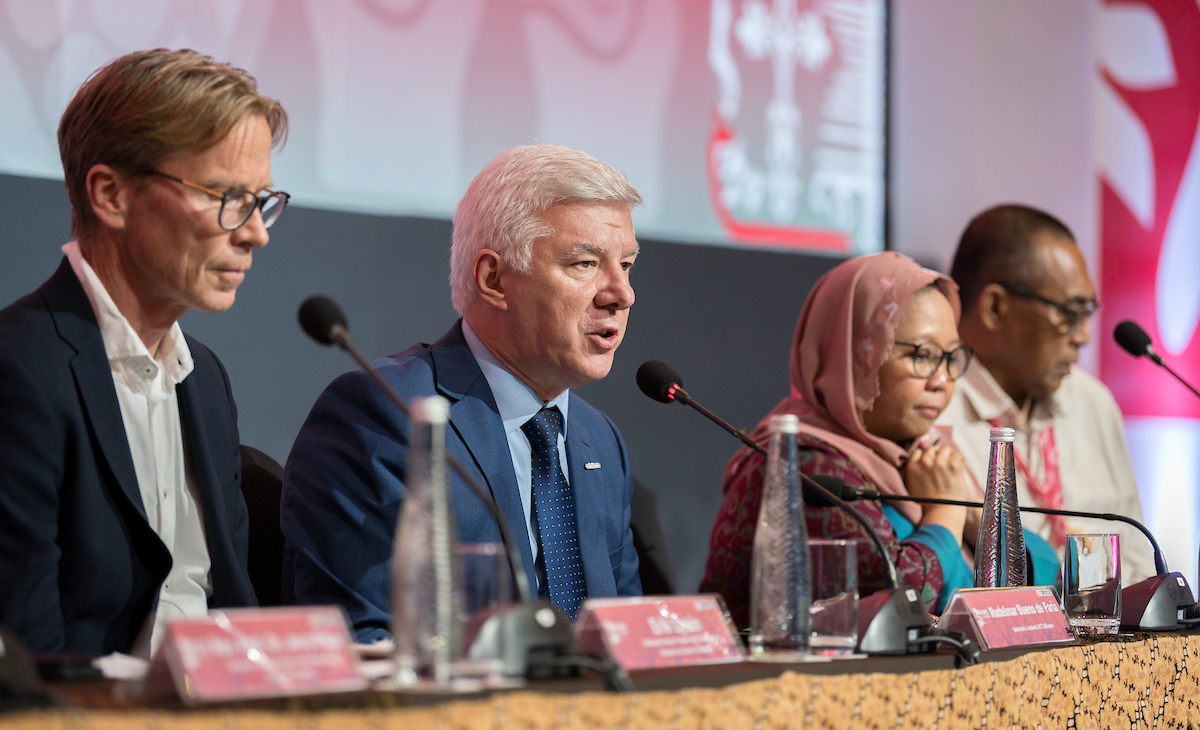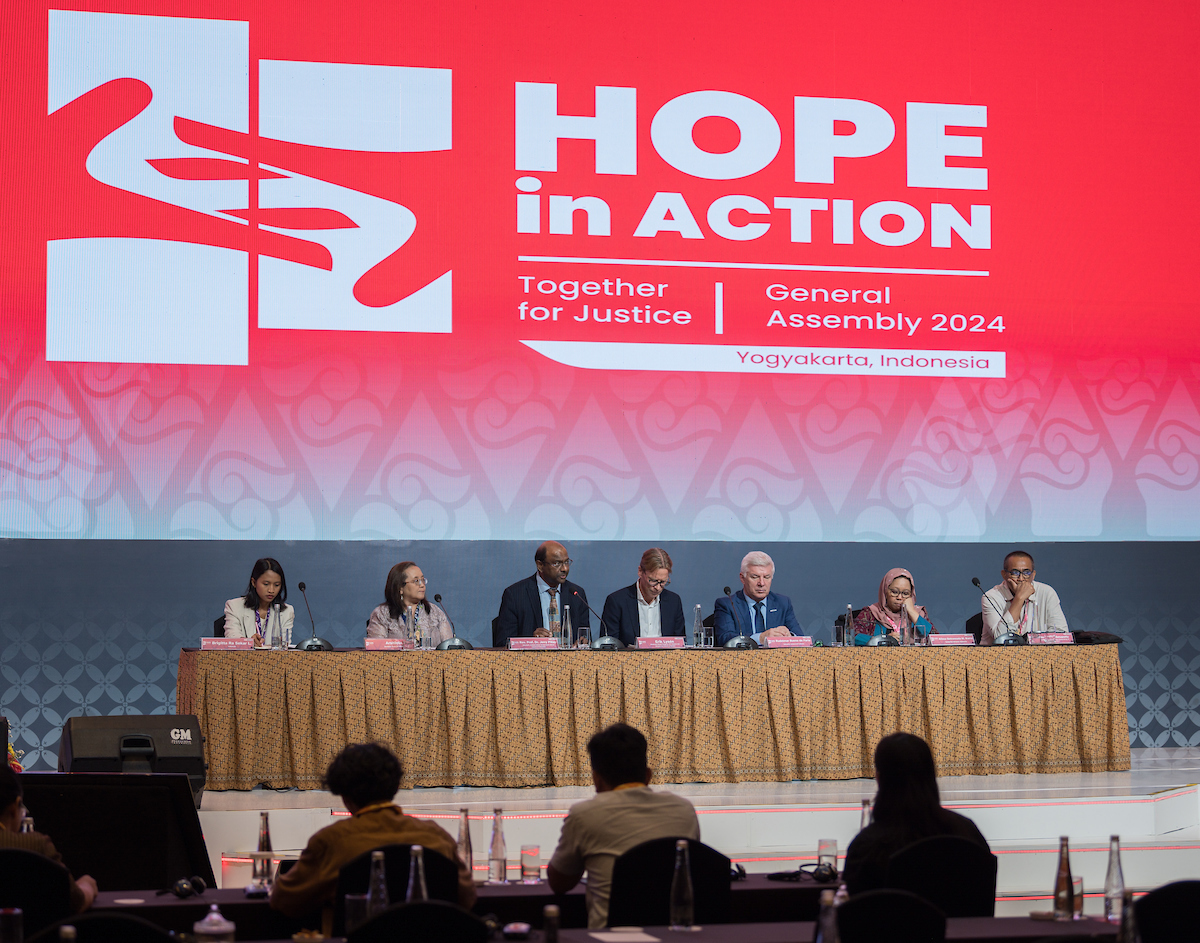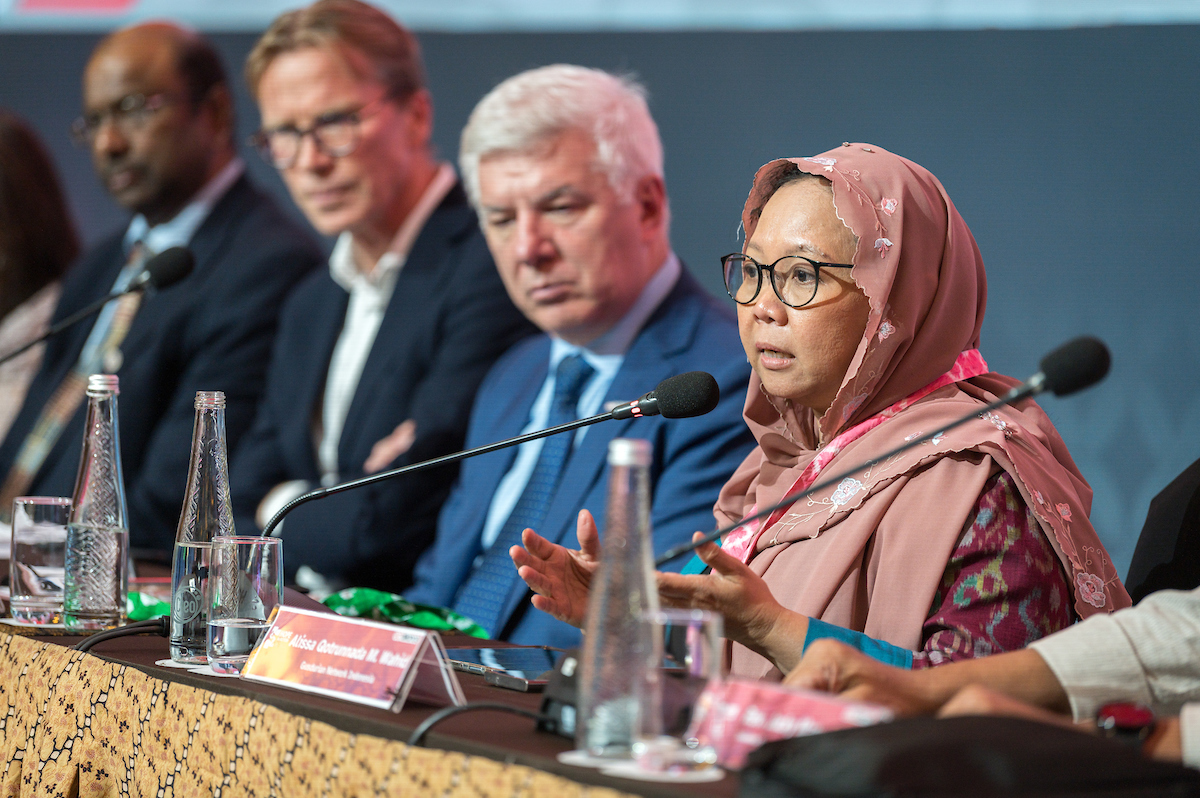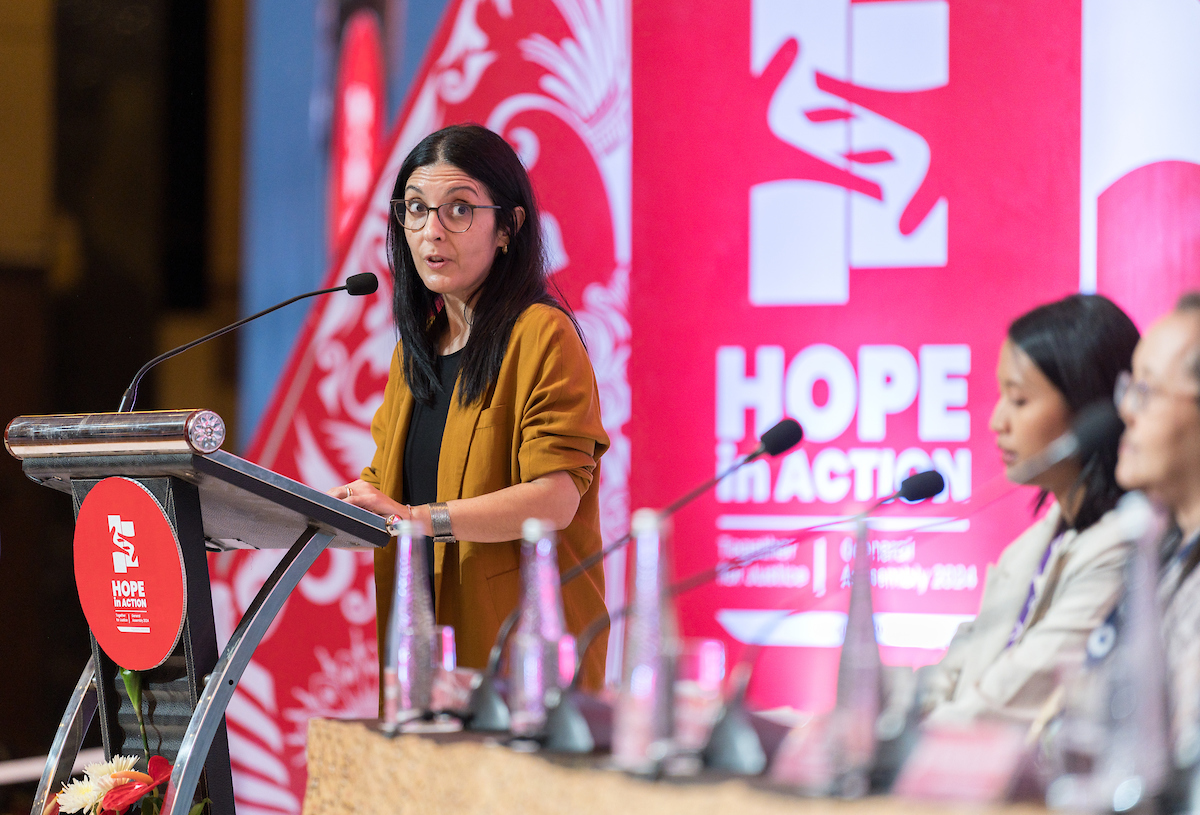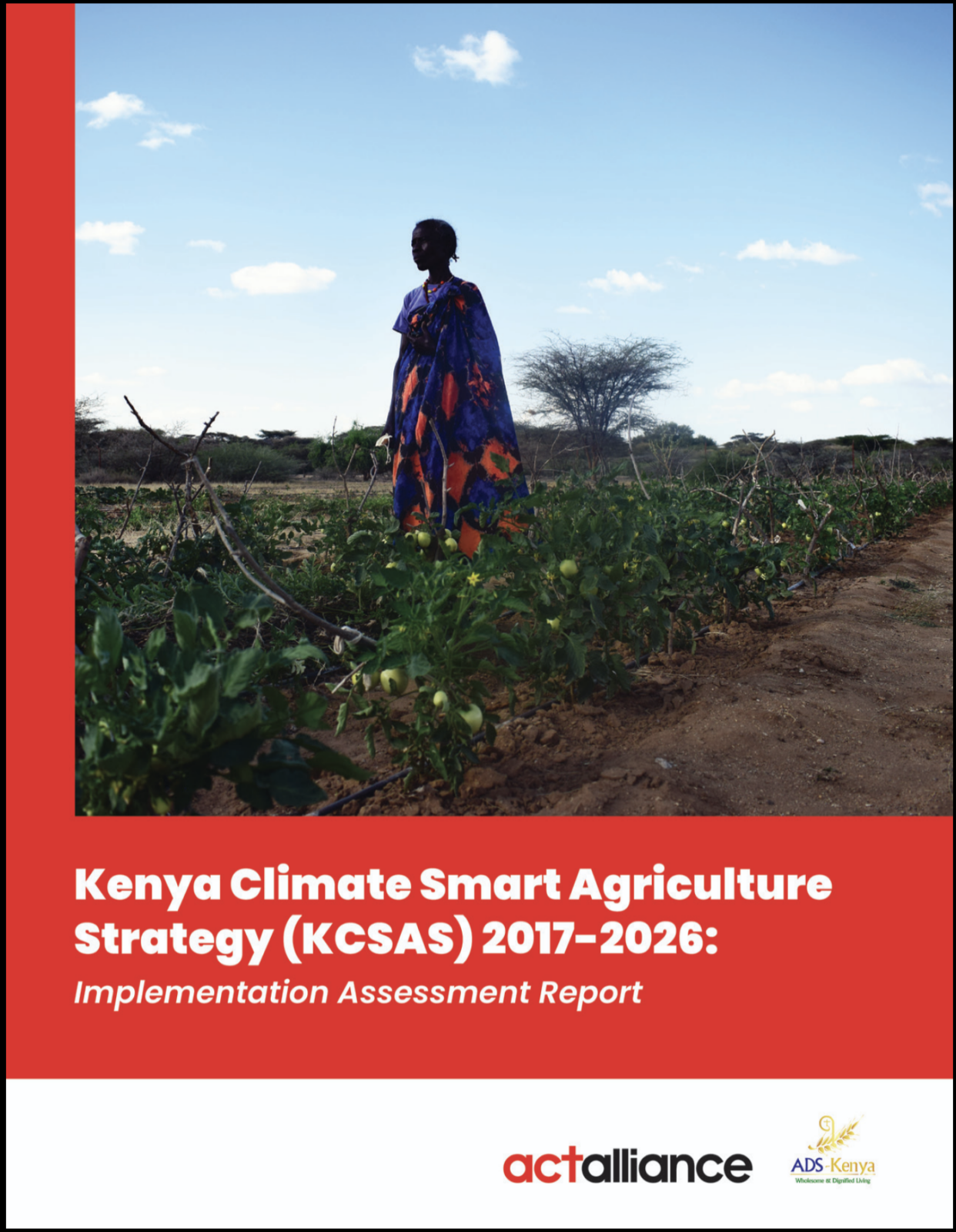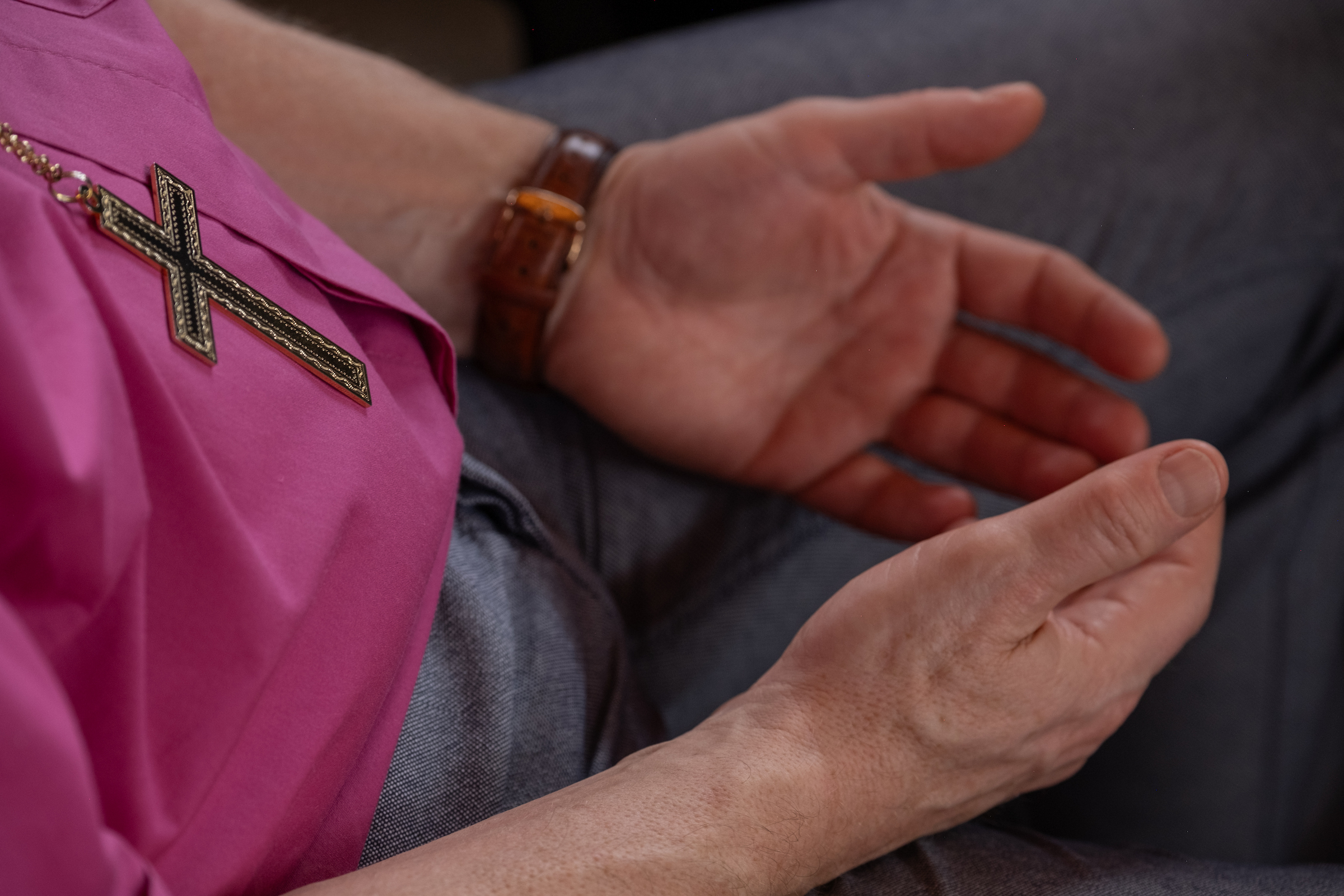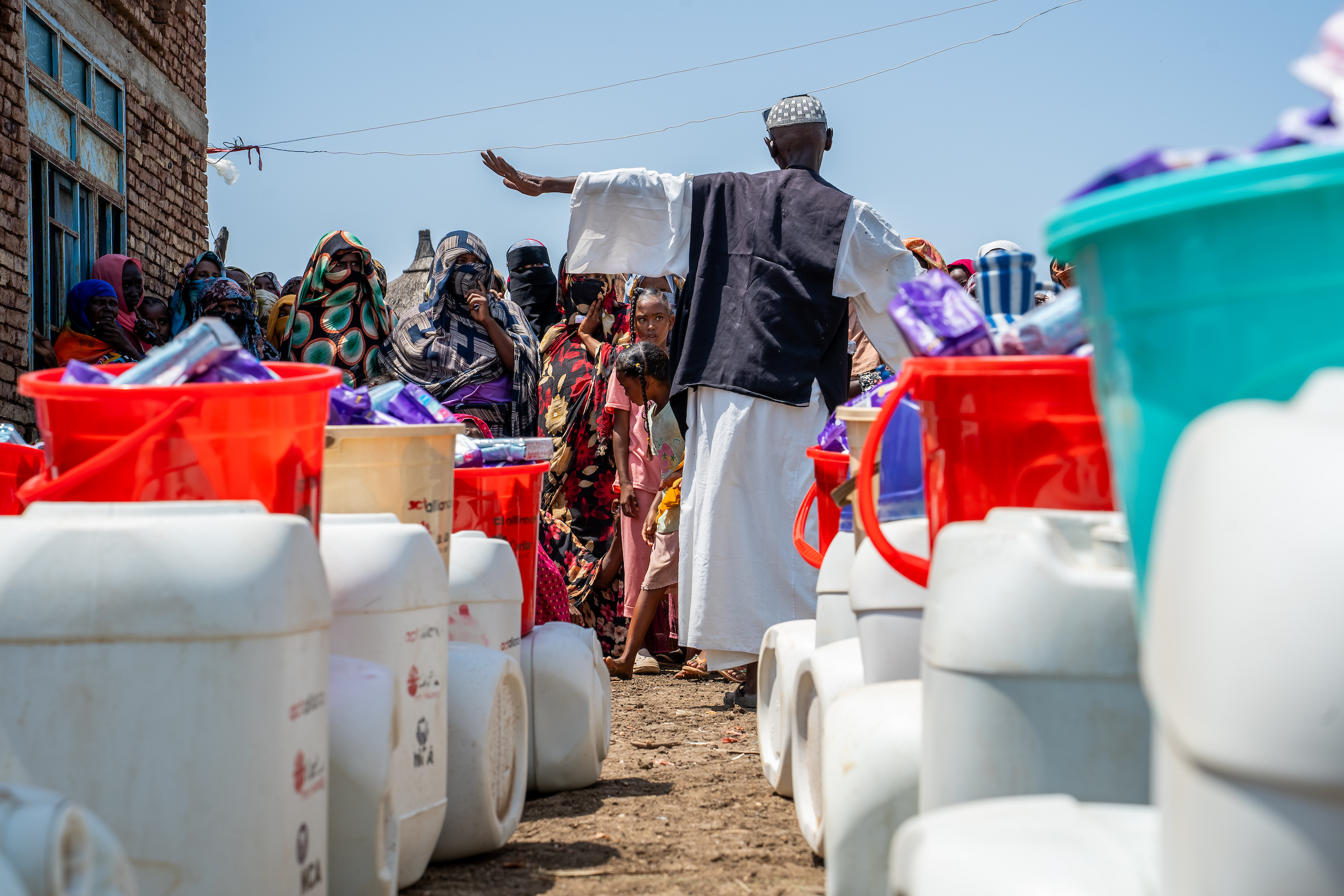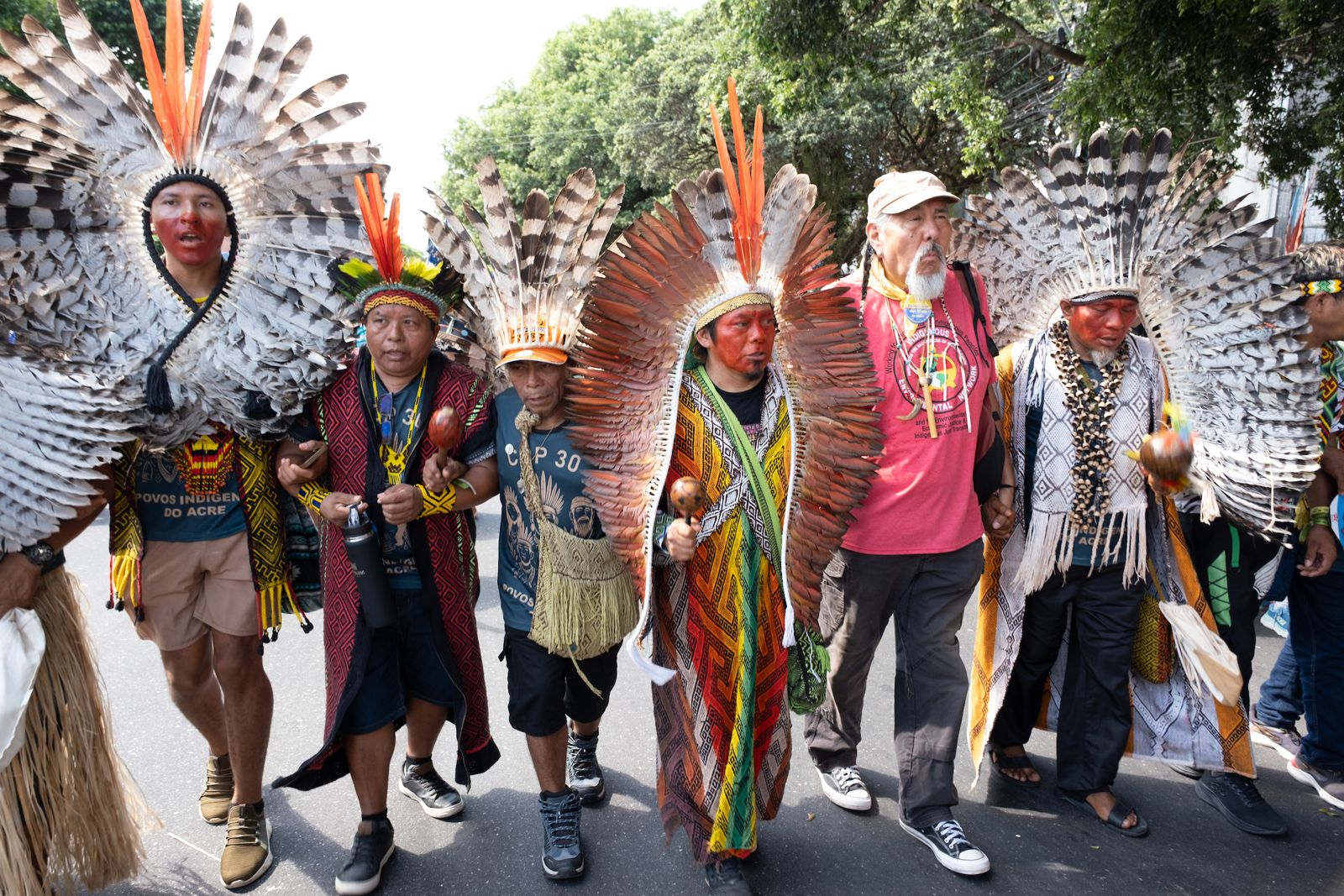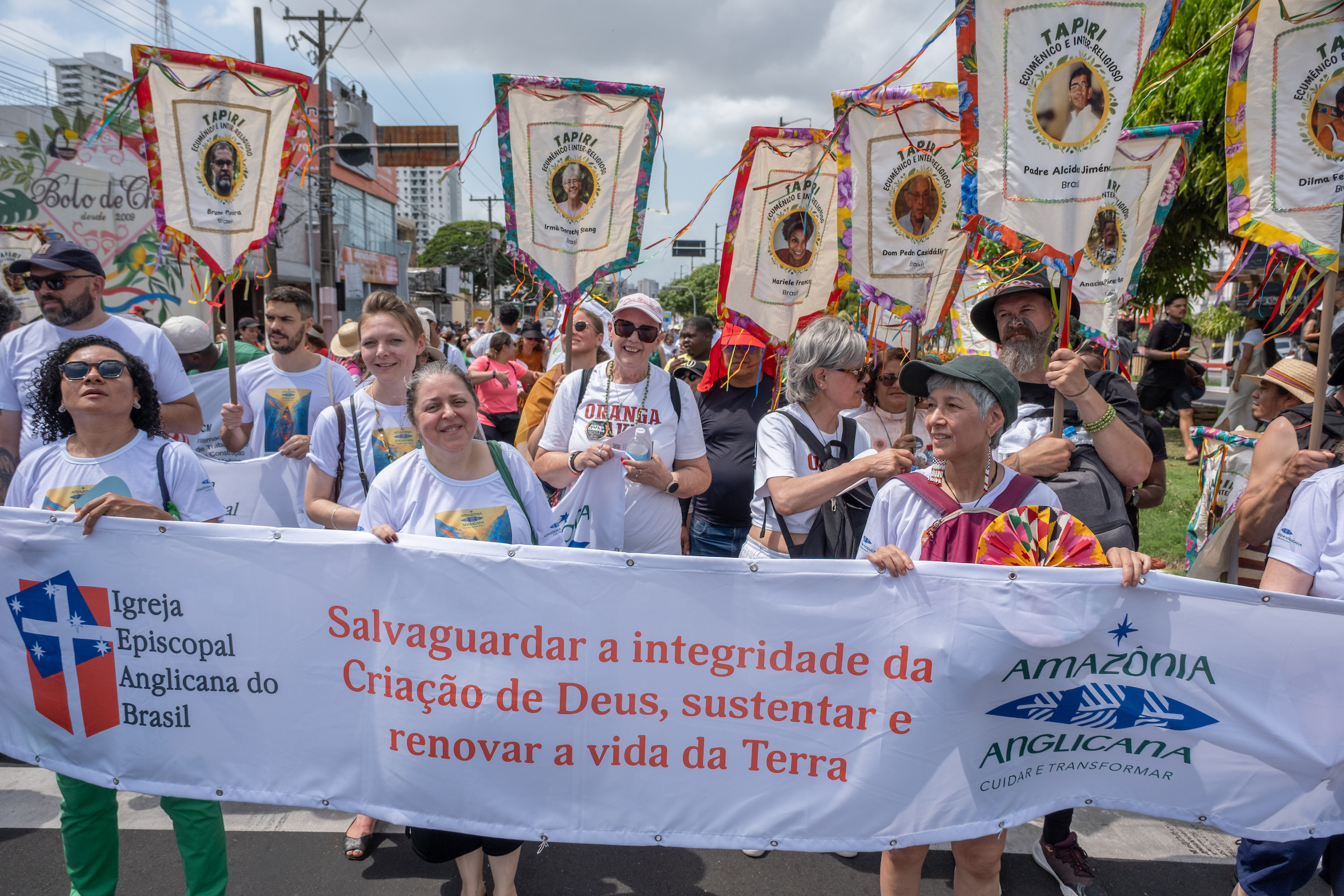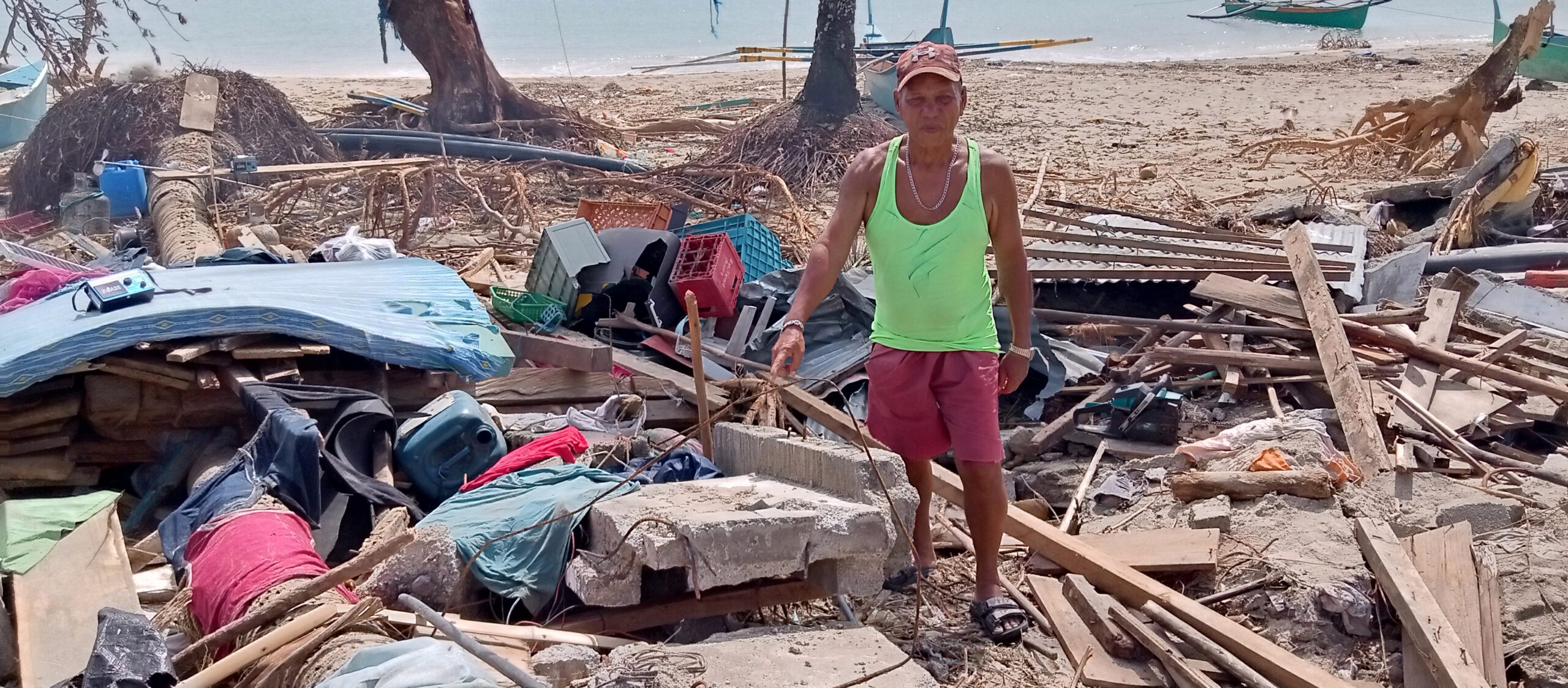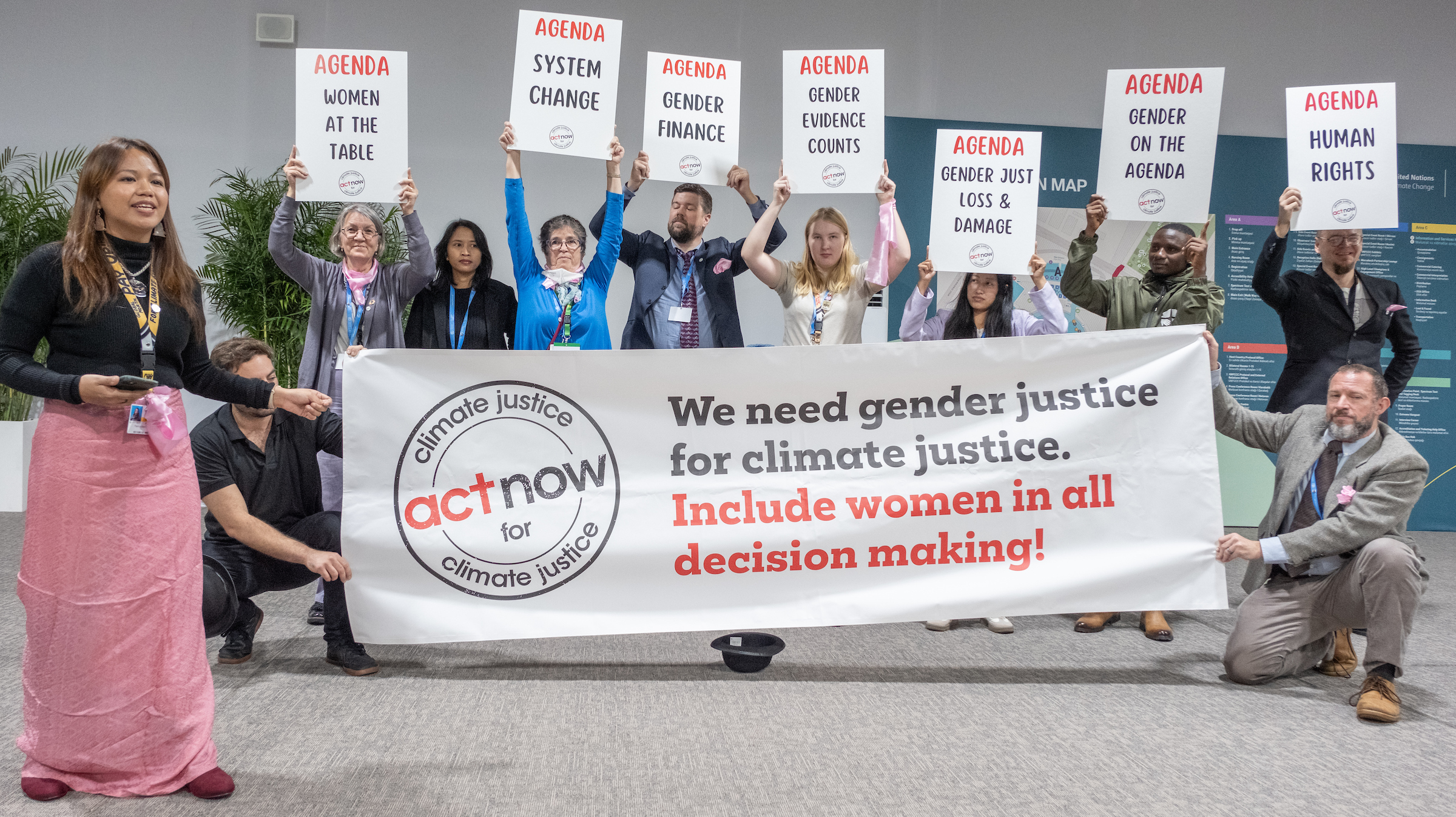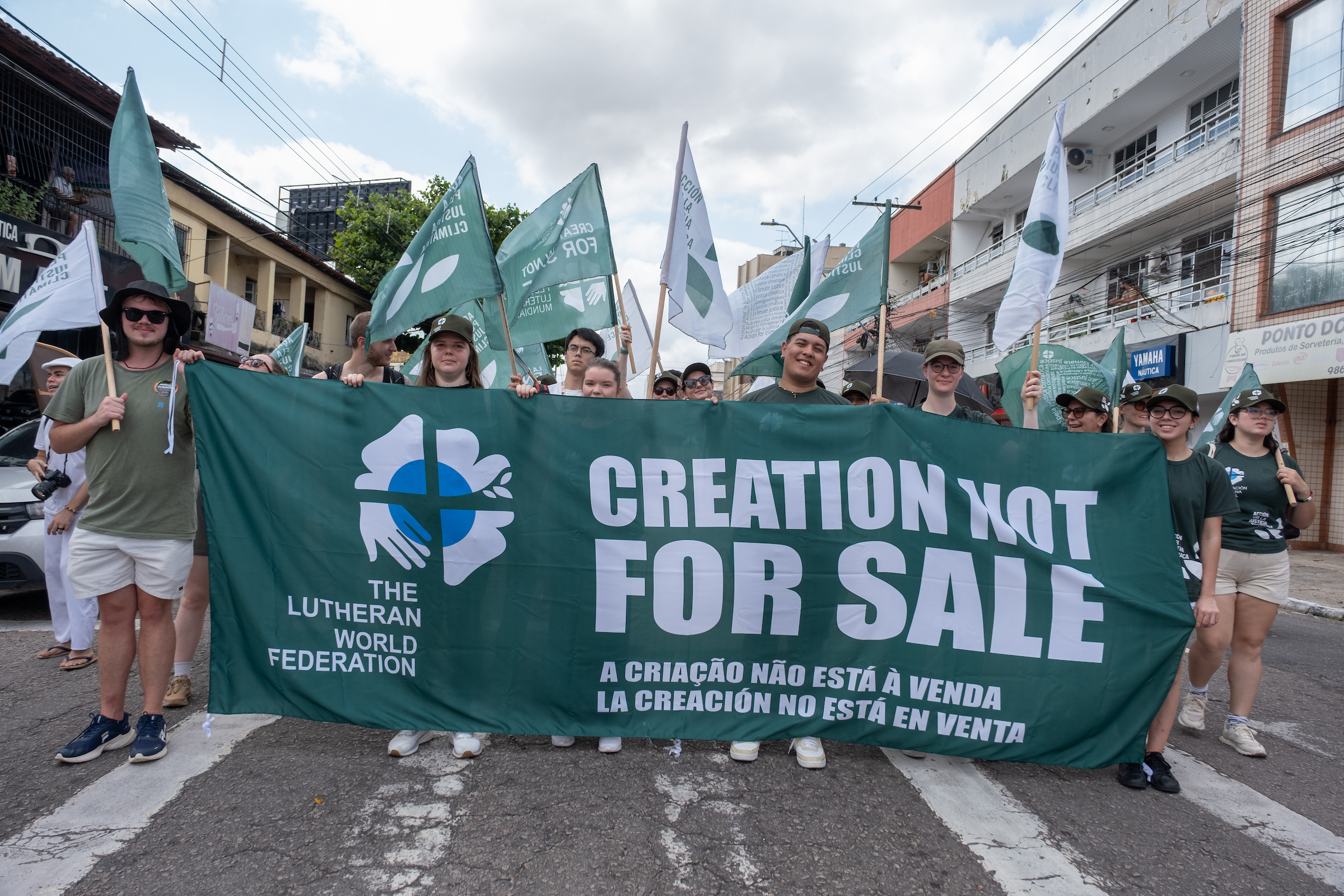The climate crisis is a threat that impacts all people, all communities, all nations in the world. ACT Alliance has had a focus on climate justice through its programming and advocacy for many years, and that focus continues in its General Assembly taking place in Yogyakarta, Indonesia October 28-November 1, 2024.
The crisis is of concern to all people, from the youth attending the Youth Pre-Assembly, to leaders of ACT, ACT members, and others speaking to journalists during a press conference, or from those working with local communities in Indonesia to those engaged in the UNFCCC’s Conferences of the Parties.
Brigitta Ra Sekar Laras, Project manager for Disaster Risk Reduction and Climate Change Adaptation, YAKKUM Emergency Unit, said, “In our discussions although we are coming from diverse contexts, there are similarity about great gaps and injustices experienced by women, vulnerable groups and youth as a result of the climate crisis mainly in the access to information, education, and employment that make young people increasingly pressured and anxious about the uncertainty of the future. The absence of political will from the state that narrows freedom of expression and puts youth in an unsafe position.”
Sekar was one of the organizers of the youth climate event during the Youth Pre-Assembly, where young people from around the world raised their voices in solidarity, calling for climate justice in Yogyakarta and around the world. “As young people, we must actively engage in understanding these issues and leading the conversation,” she said. “By raising awareness among our peers and communities, we can motivate collective action. Community-led initiatives have shown to be effective and sustainable, especially when they involve our voices and experiences.”
Rudelmar Bueno de Faria, General Secretary of the ACT Alliance, spoke about the additional challenges posed by polarization, but also the role of churches and other faith actors, “Yet, it is precisely in these challenging times when the role of civil society, and particularly faith-based organizations, becomes even more vital. ACT Alliance members are rooted in communities and have the trust of those we serve. In moments of crisis, faith-based actors are often the first to respond and the last to leave, because we are already part of the communities.”
The Rev. Prof. Dr Jerry Pillay, General Secretary of the World Council of Churches, recalled the importance of learning from Indigenous Peoples as we strive for justice in our response to the climate crisis, “Christ’s love calls us to deep solidarity and a quest for justice for those who have contributed to this emergency the least, yet suffer the most, physically, existentially, and ecologically, through a transformation of systems and lifestyles, and in this regard we have so much to learn from indigenous peoples.”
Alissa Wahid, National Director of Gusdurian Network Indonesia, underscored the impact of climate change on women and children in Indonesia, and issued a call to civil society to “to take on more significant roles, especially in calling out all other actors in society and systems to address this very dire and urgently.”
Rev. Jacky Manuputty, General Secretary of the Indonesian Communion of Churches (PGI), underscored the particular challenges facing Indonesia from rising temperatures and decreased rainfall, but also rising sea levels and the dangers of flooding, all of which are linked directly to climate change. “We organize interfaith cooperation for the preservation of rain forests. The church actively participates in empowering Indigenous people and safeguarding their forests,” he said, highlighting the practical responses of churches to the need for climate justice.
Arshinta, the Director of YAKKUM Development and Humanitarian Programmes, underscored the need for action to bring about climate justice and find solutions to the climate crisis. “We need to turn our talk into concrete actions. As local actors and part of the faith community, YAKKUM wants to contribute to inclusive, sustainable and just solutions.” These include climate adaptations for vulnerable communities, mental health programmes, support to people living with AIDS, and more.
Erik Lysén, the Director of Act Church of Sweden, underscored the role that ACT Alliance and other faith actors can play in the global advocacy sphere, particularly the COPs. “Together with the WCC, and coming together as an alliance, we can influence the political negotiations. We have all the testimony from our members coming from the Global South, talking about the impacts of climate change. We know that this has an impact on all politicians in the Global South and the Global North.”
As the Assembly continues to discuss the work of ACT Alliance under the theme “Hope in Action: Together for Justice”, the climate crisis will be an integral part of those discussions and of the future of all members of ACT Alliance, to ensure a world of justice can continue for this generation and those to come.
